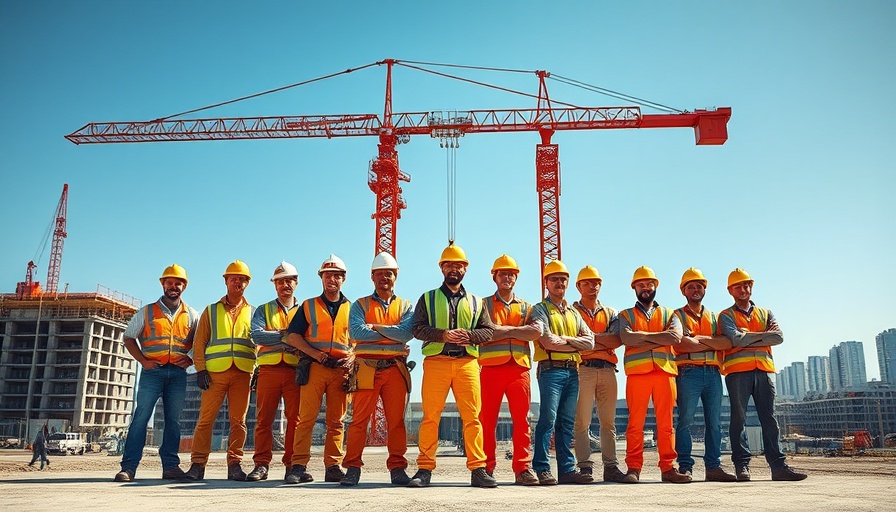
The Impact of Tariffs on the Construction Industry
In a landscape shaped by evolving trade policies, Fluor Corporation is experiencing significant shifts in its project backlog and cancellations. Recent statements from CEO Jim Breuer highlight a cautious sentiment among clients, with many adopting a "wait-and-see" approach as they grapple with mounting costs and interest rates. This pause could reshape the future of many ongoing and proposed construction projects, underscoring the critical nature of stable trade policies.
How Trade Policies Are Complicating Project Timelines
The private sector typically pushes forward with major projects, hoping to capitalize on market demand. However, as Fluor has reported, numerous clients are delaying or even cancelling projects altogether. Breuer noted that a variety of factors, including uncertain trade talks and explosive cost overruns, are influencing these decisions. In previous quarters, Fluor had seen clients advancing with projects despite these pressures, but the tide has turned dramatically.
Understanding the Consequences of Cost Overruns
Fluor's Urban Solutions segment has faced staggering declines in profits, down to $29 million in the second quarter compared to $105 million a year earlier. These cost overruns are specifically troubling for high-profile infrastructure projects such as the Gordie Howe International Bridge and the LBJ 635 expansion in Dallas. As these projects stagnate under ballooning costs, stakeholders must consider how such challenges could influence related sectors within the construction industry.
Legal Actions and Accountability in Construction Projects
With poor contractor performance cited as a significant cause of delays and budget overruns, Fluor's decision to pursue legal action against certain subcontractors signals a growing concern about accountability in the construction sector. This could set a precedent for other firms facing similar challenges, emphasizing the importance of reliable partnerships in an industry that thrives on collaboration.
Future Predictions: Navigating Project Challenges Ahead
As we look to the future, the combination of tariffs, rising interest rates, and project cancellations paints a challenging picture for stakeholders in the construction industry. Companies must adapt their strategies, focusing on building resilient project designs and refining contractor relationships. With the right adjustments, it is possible to weather the storm of current challenges and emerge stronger.
Broader Implications for Homeowners and Contractors
Homeowners and contractors alike must stay informed about the implications of these changes in the construction landscape. For contractors, recognizing the potential delays and cancellations can guide their business strategies. For homeowners, understanding these issues underscores the importance of careful planning when embarking on renovation or construction projects. Following these trends will be crucial in making informed decisions that align with current market realities.
Final Thoughts: The Importance of Monitoring Changes
For stakeholders in the home and construction markets, awareness of shifting dynamics caused by tariffs and cancellations is essential. The decisions made today will have lasting impacts. Homeowners are encouraged to communicate with contractors about potential challenges and timeline adjustments as the industry adapts to these pressures.
If you are a homeowner or contractor, stay alert to developments in the construction industry, as they could influence your upcoming projects. Embracing flexibility and proactive planning will be key to navigating this turbulent landscape.
 Add Row
Add Row  Add
Add 




Write A Comment